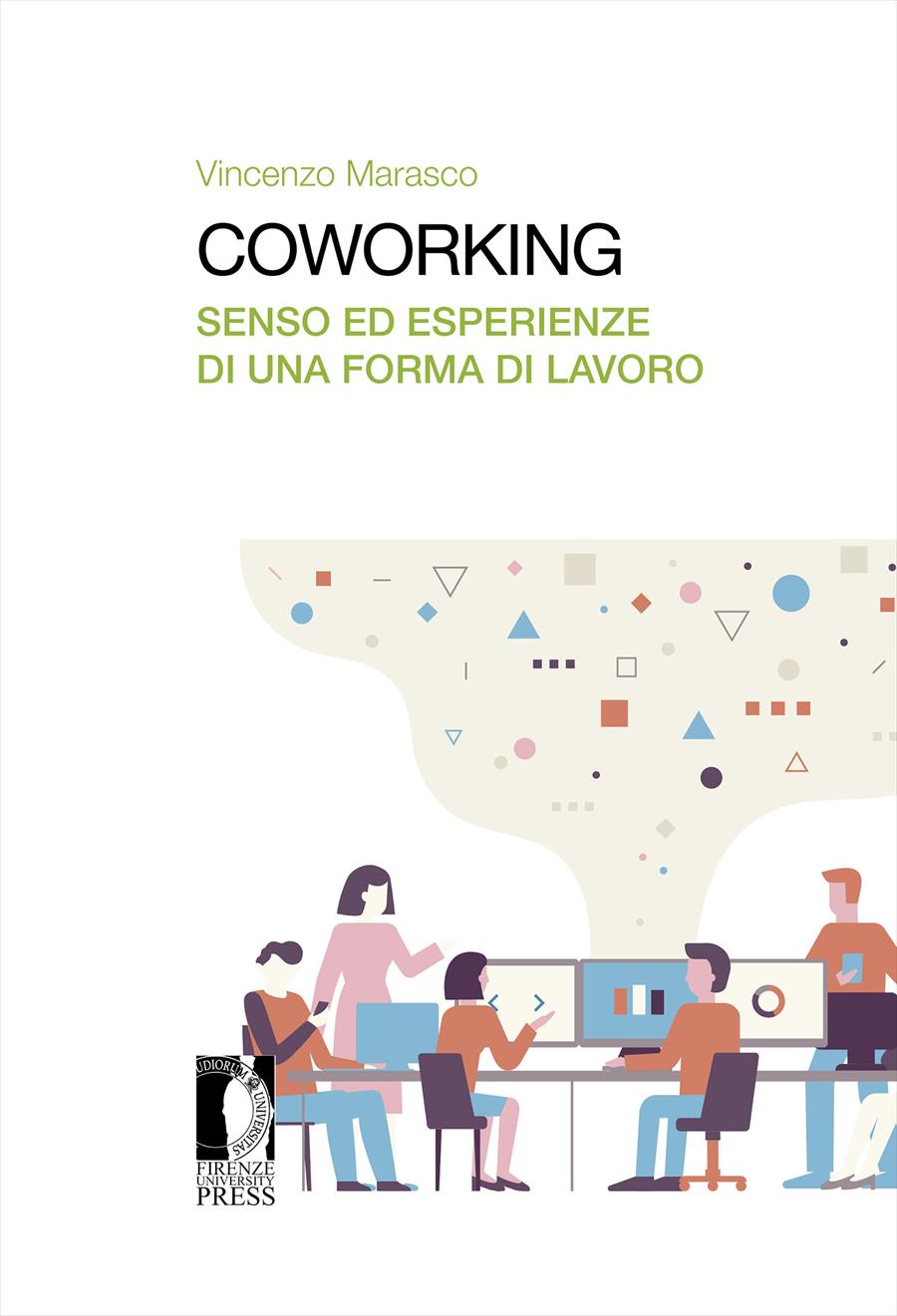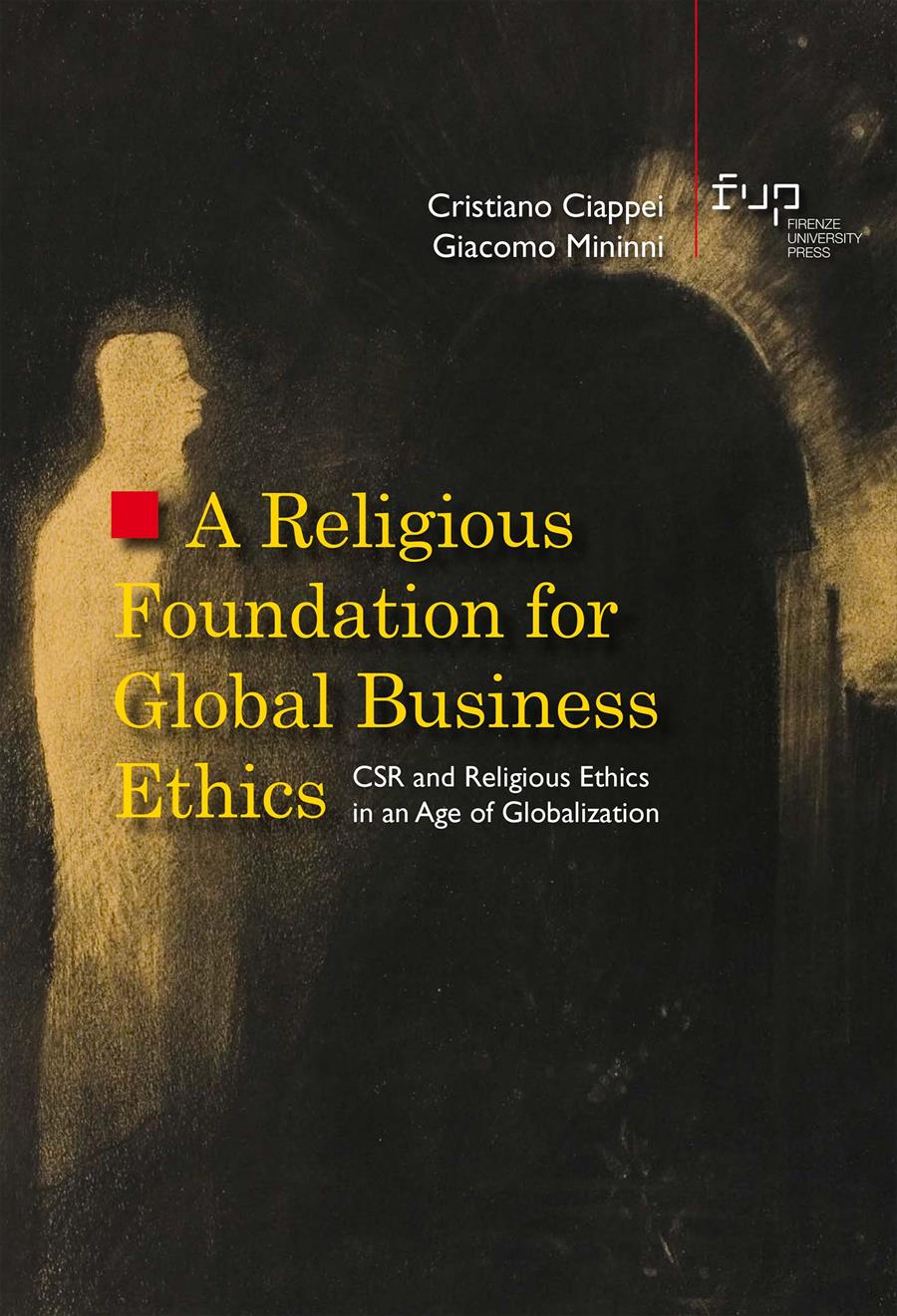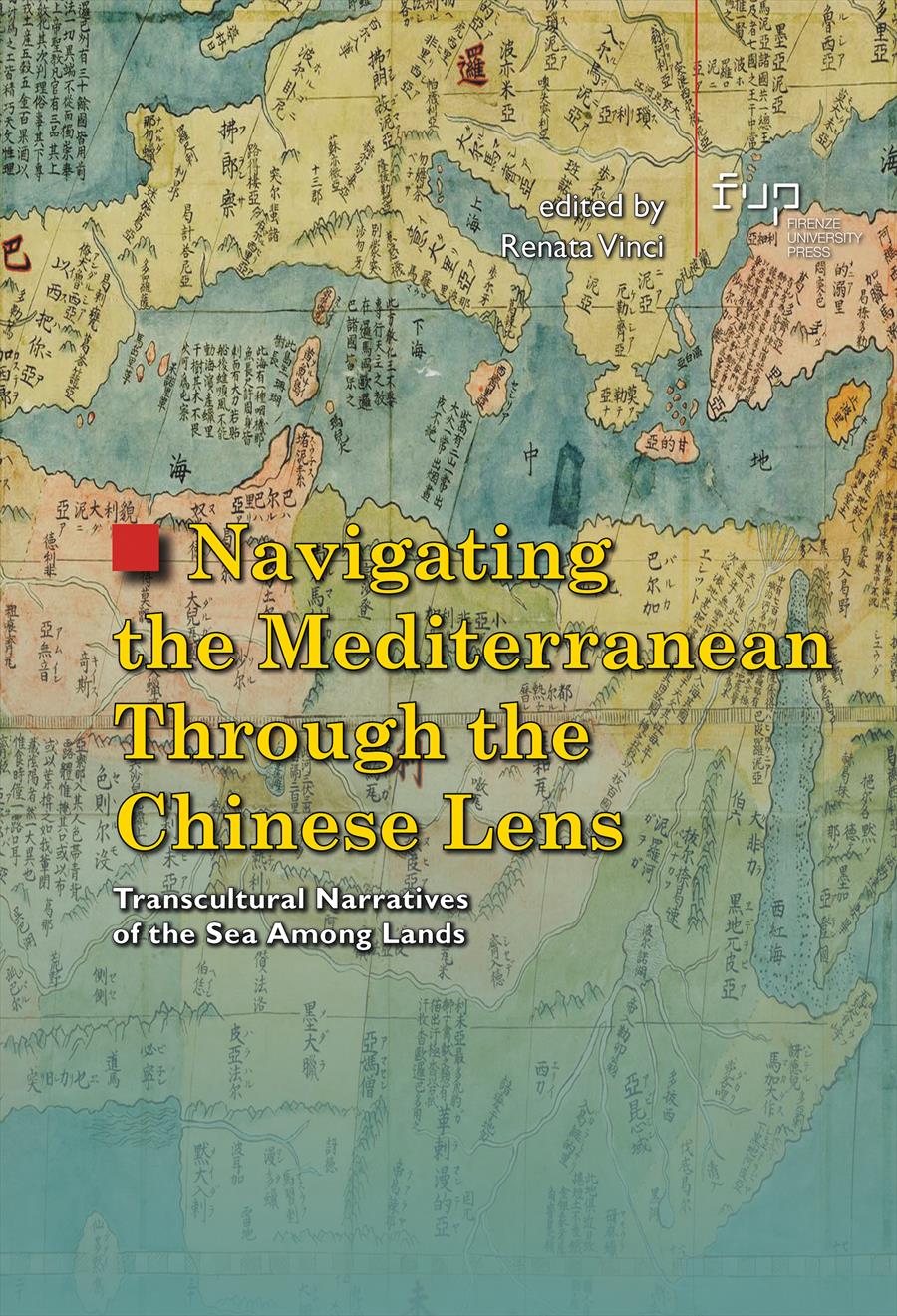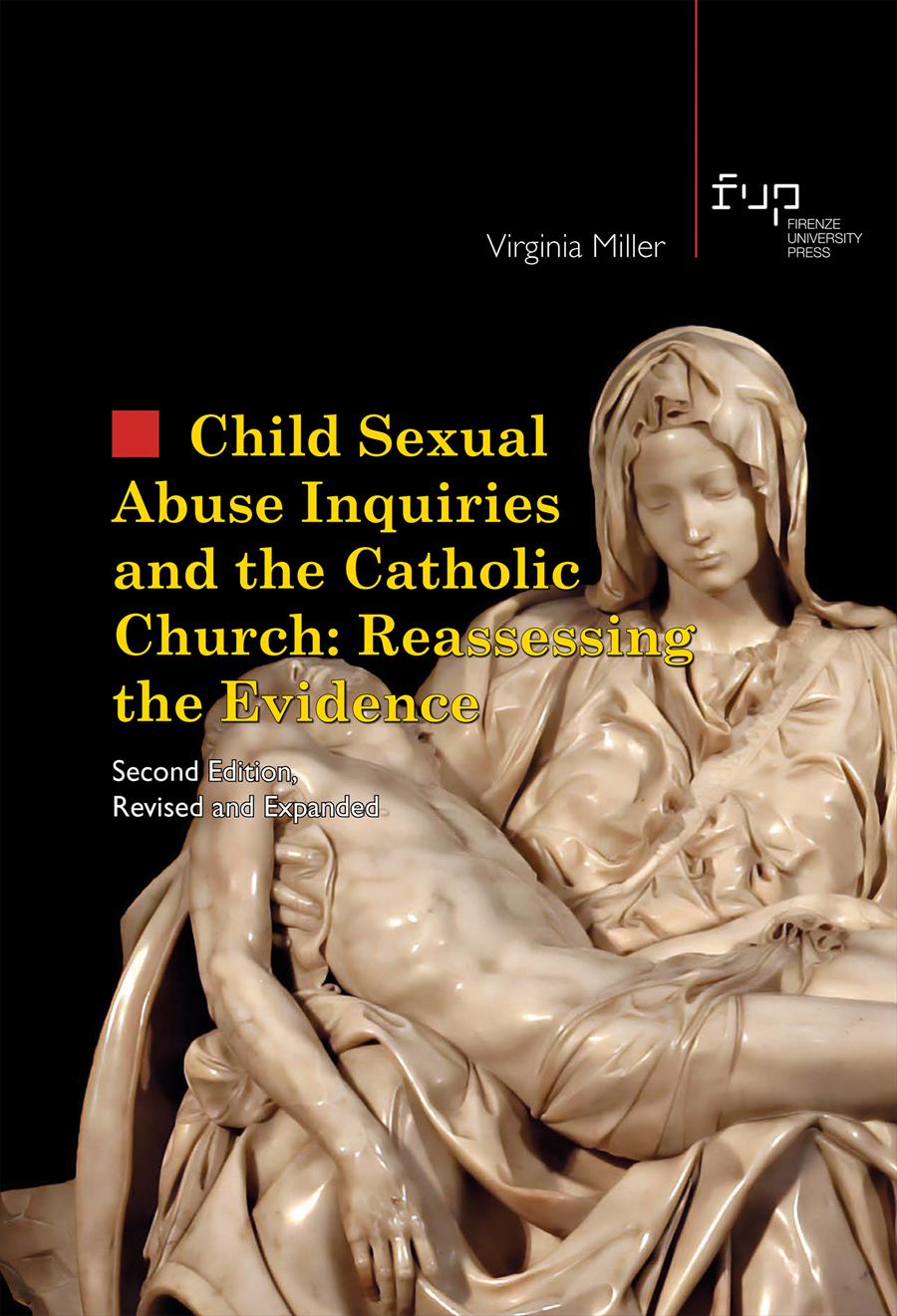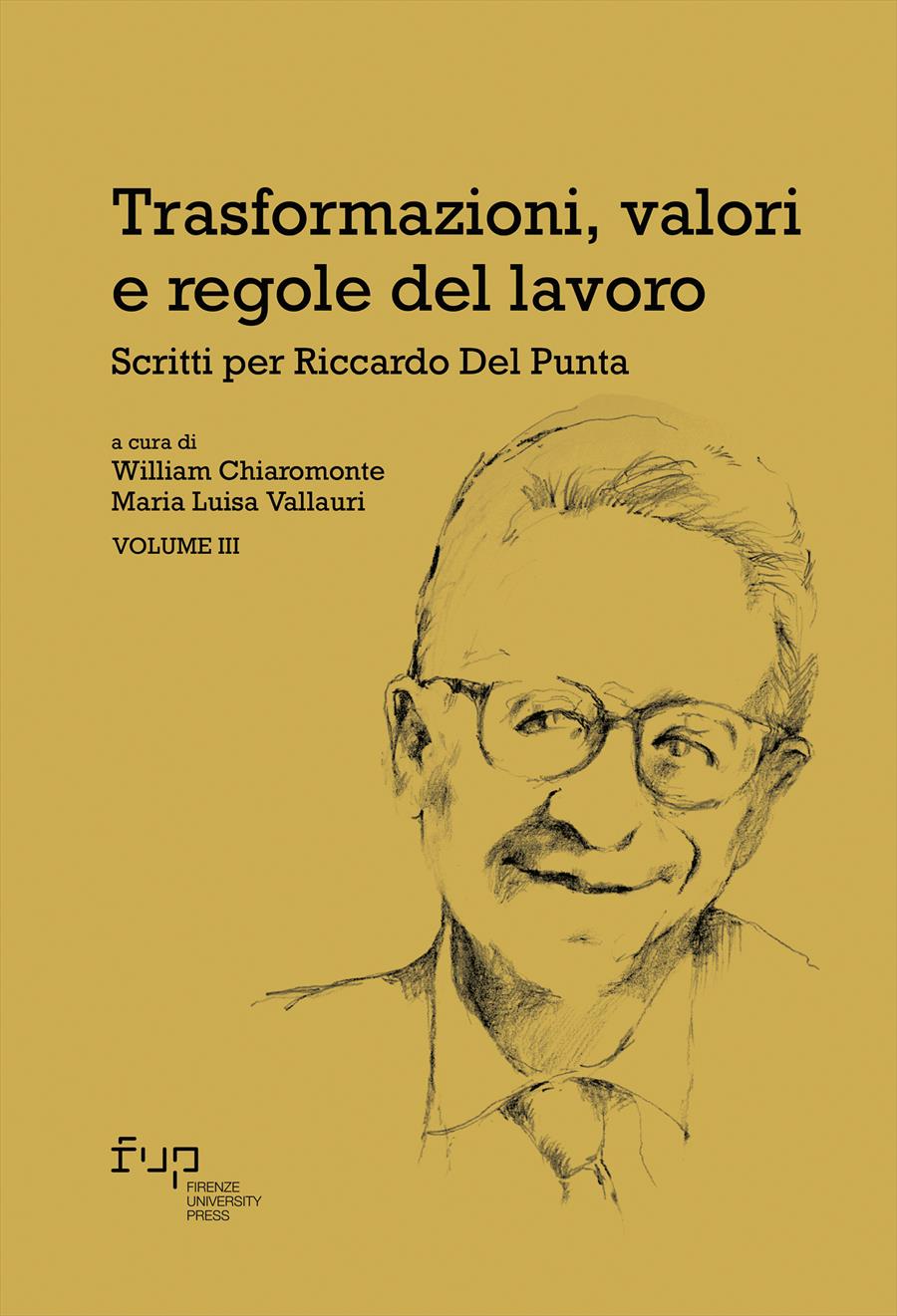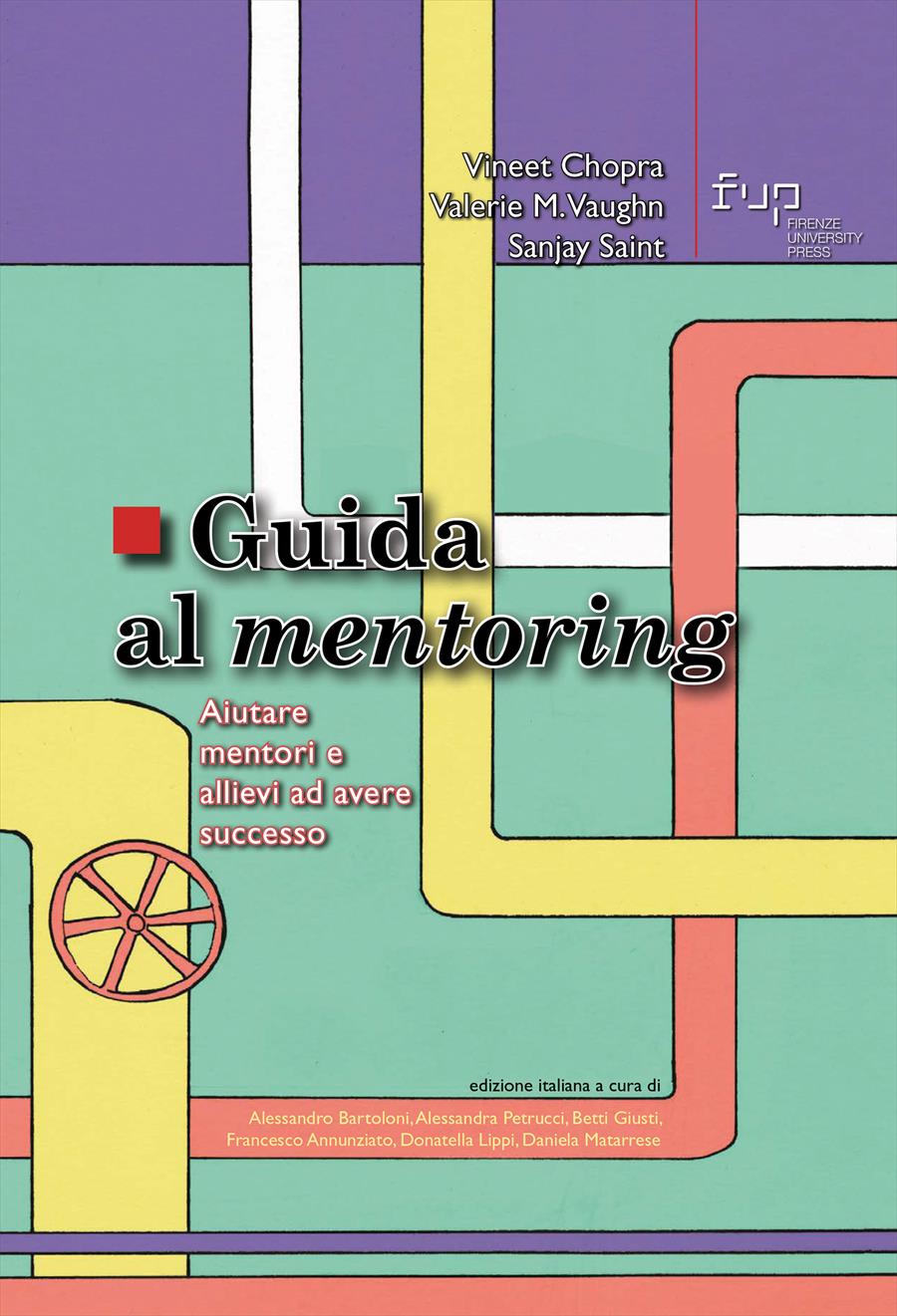Coworking
Senso ed esperienze di una forma di lavoro
- Vincenzo Marasco,
Coworking spaces are now widespread in Italy, and coworking is presented as an organisational innovation able to meet the needs of the new self-employed work. But what kind of work is actually performed in these spaces? What conditions and difficulties is it dealing with? How do these work experiences reshape the boundaries between different life times and between work and non-work? And what strategies are implemented by coworkers in their search for a "good job"? The book addresses these questions on the basis of a case study on coworking experiences in the city of Florence, exploring the subjective aspects of this form of work, the intertwining of contents, conditions and meaning of work.
- Keywords:
- coworking,
- self-employment,
- freelancers,
- individualization,
- meaning of work,
- DOI: 10.36253/978-88-5518-392-5
- Series: Studi e saggi
- Scientific Board: Teorie, pratiche, storie del lavoro e dell’idea di ozio / Histories, Theories and Practices of Labour and of the Idea of Leisure
- Language: Italian
- Subjects: Sociology
University of Florence, Italy
- Age of Consent. n.d. “United States Age of Consent Map.” Accessed June 18, 2019. https://www.ageofconsent.net/
- Cheit, Ross E. 2014. The Witch-Hunt Narrative: Politics, Psychology, and the Sexual Abuse of Children. Oxford: Oxford University Press. DOI: 10.2307/2870430
- Age of Inquiry. n.d. “A global mapping of institutional abuse inquiries.” Accessed June 13, 2020.
- Independent Inquiry into Child Sexual Abuse. 2019b. “The Roman Catholic Church. Case Study: Archdiocese of Birmingham.”. https://www.iicsa.org.uk/gation/birmingham-archdiocese DOI: 10.1111/j.1741-4113.2006.00305.x
- Aeenan, Marie. 2012. Child Sexual Abuse and the Catholic Church: Gender Power and Organizational Culture. Oxford: Oxford University Press.
- Miller, Virginia. 2018. “Speaking the Truth in Love (Eph 4:15): An Analysis of the Findings of the Royal Commission into the Institutional Responses to Child Sexual Abuse.” St Mark’s Review 3: 72-98
- Ariere, John N., and Diana M. Elliott. 1994. “Immediate and Long-Term Impacts of Child Sexual Abuse." The Future of Children, no. 2: 54-69 DOI: 10.2307/1602523
- Law Reform Commission. n.d. “Commission recommends abolition of public justice office.” Accessed January 25, 2021. DOI: 10.2307/2870430
- Royal Commission into the New South Wales Police Service and Wood, J. R. T. and NSW Child Protection Council. 1997. Final Report. Sydney: Royal Commission into the New South Wales Police Service. DOI: 10.36253/95688430
- A. Accornero. 2000. "La società dei lavori". Sociologia del lavoro, no. 80
- G. Allegri, R. Ciccarelli. 2013. Il Quinto Stato. Ponte alle Grazie.
- C. Aguiton, D. Cardon. 2007. The Strength of Weak Cooperation: An Attempt to Understand the Meaning of Web 2.0. Munich Personal RePEC Archive.
- A. Amin. 1994. Post-fordism. Oxford: Blackwell.
- E. Armano. 2010. Precarietà e innovazione nel postfordismo. Bologna: Odoya.
- A. Arvidsson. 2015. La solidarietà debole. Doppiozero. https://www.doppiozero.com/
- A. Arvidsson.2006. Brands. Meaning and value in media culture. London: Routledge.
- A. Arvidsson, G. Malossi, Serpica Naro. 2010. Passionate Work? Labour Conditions in the Milan Fashion Industry, www.reteurbanomilano.com.
- A. Arvidsson., M. Giordano. 2013. Society Reloaded. Egea.
- C. Bandinelli, A. Arvidsson. 2013. ‘Brand yourself a changemaker!’. Journal of Macromarketing, no. 33, 1.
- C. Bandinelli. 2015. Il miglior lavoro del mondo. Doppiozero Libri.
- C. Bandinelli. 2016. Social Entrepreneurship: Sociality, Ethics and Politics. Tesi di dottorato.
- C. Bandinelli.2020. Social Entrepreneurship: Making Money While Doing Good. London: Rowman and Littlefield International.
- M. Banks. 2007. The Politics of Cultural Work. Basingstoke: Palgrave Macmillan.
- R. Barthes. 1994. Miti d’oggi. Torino: Einaudi.
- M. Bascetta. 2015. (eds). Economia politica della promessa. Roma: manifestolibri.
- Z. Bauman. 1978. Hermeneutics and Social Science. Approaches to Understanding. London: Hutchinson.
- Z. Bauman.1997. Dentro la globalizzazione. Le conseguenze sulle persone. Milano: Feltrinelli.
- Z. Bauman. 1999. Quale morale per un tempo d’incertezze?, in C. Leccardi. Limiti della modernità. Roma: Carocci.
- Z. Bauman. 2000. Pensare sociologicamente. Ipermedium Libri
- Z. Bauman. 2002. La società individualizzata. Bologna: il Mulino.
- U. Beck. 2000a. La società del rischio. Roma: Carocci.
- U. Beck. 2000b. Il lavoro nell’epoca della fine del lavoro. Torino: Einaudi.
- U. Beck, A. Giddens, S. Lash. 1994. Reflxive Modernization. Cambridge: Polity Press.
- D. Bell. 1973. The Coming of the Postindustrial Society. New York: Basic Books.
- Y. Benkler. 2007. The Wealth of Networks: How Social Production Transforms Markets and Freedom. Yale University Press.
- D. Bertaux. 2003. Racconti di vita. La prospettiva etnosociologica. Milano: Franco Angeli.
- H. Blair. 2001. ‘You’re Only as Good as Your Last Job’: The Labour Process and Labour Market in the British Film Industry. Work, Employment & Society, no. 15.
- A. Bonomi, E. Rullani. 2005. Il capitalismo personale: vite al lavoro. Torino: Einaudi.
- S. Bologna, A. Fumagalli. 1997.(eds). Il lavoro autonomo di seconda generazione. Scenari del postfordismo in Italia. Milano: Feltrinelli.
- Bologna S. (2007), Ceti medi senza futuro? Scritti, appunti sul lavoro e altro. Derive&Approdi.
- S. Bologna, D. Banfi. 2011. Vita Da Freelance. I lavoratori della conoscenza e il loro futuro. Milano: Feltrinelli.
- L. Boltansky, E. Chiappello. 2014. Il nuovo spirito del capitalismo. Milano: Mimesis.
- Botsman R., Rogers R. (2011), What's Mine Is Yours: The Rise of Collaborative Consumption, New York: HarperCollins.
- P. Bourdieu. 1998. Meditazioni pascaliane. Milano: Feltrinelli.
- S. Brint. 2001. Professional and the Knowledge Economy: rethinking the theory of postindustrial society. Current Sociology, no. 49 (4).
- M. Busacca. 2014. Performatività del welfare? Un’analisi delle pratiche e dei discorsi dei coworking plus, paper presentato al IX Colloquio scientifico sull’Impresa Sociale.
- M. Busacca. 2015. Coworking come nuovo laboratorio dell’innovazione. Che Fare. www.che-fare.com
- T. Butcher. 2013. Coworking: locating community at work. Macquarie University Graduate School of Management.
- F. Butera, E. Donati, R. Cesaria. 1997. I lavoratori della conoscenza. Quadri, Middle Manager e alte professionalità tra professione e organizzazione. Milano: Franco Angeli.
- F. Butera, S. Bagnara, R. Cesaria, S. Di guardo. 2008. Knowledge Worker. Lavoro, lavoratori, società della conoscenza. Milano: Mondadori Università.
- I. Capdevila. 2013. Knowledge dynamics in localized communities: Coworking spaces as microclusters. https://ssrn.com/abstract=2414121 or http://dx.doi.org/10.2139/ssrn.2414121
- R. Castel. 2004. L’insécurité sociale. Qu’est-ce qu’être protégé?. Paris: Éditions du Seuil.
- R. Castel. 2009. La montée des incertitudes. Travail, protections, statut de l’individu. Paris: Éditions du Seuil.
- M. Castells. 1996. The Rise of Network Society. Wiley-Blackwell.
- G. Chiaro, G. Prati, M. Zocca. 2015. Smart working: dal lavoro flessibile al lavoro agile. Milano: Franco Angeli.
- J. Clark. 2007. ‘Coworkers of the world unite’. The American Prospect. [http://prospect.org/article/coworkers-world-unite]
- F. Coin. 2017. Salari rubati. Economia, politica e conflitto ai tempi del salario gratuito. Verona: Ombre Corte.
- E. Colleoni, A. Arvidsson. 2014. Knowledge sharing and social capital building. The role of co-working spaces in the knowledge economy in Milan. Unpublished Report.
- G. DeGuzman, A. Tang. 2011. Working in the Unoffice: A Guide to Coworking for Indie Workers, Small Business and Nonprofits. Night Owls Press.
- D. Di Nunzio, E. Toscano. 2015. Vita da professionisti. Rapporto di ricerca, Associazione Bruno Trentin.
- J. Donzelot. 1991. Pleasure in Work, in G. Burchell, C. Gordon, P. Miller (eds.), The Foucault Effect: Studies in Governmentality, Chicago: Univesity of Chicago Press.
- E. Dowling. 2007. Producing the Dining Experience: Measure, Subjectivity, and the Affective Workers. Ephemera, no. 7(1).
- P. F. Drucker. 1969. The Age of Discontinuity. New York: Heinemann.
- P. Du Gay. 2009. Consumption and Identity at Work. London: SAGE.
- N. Elias. 1988. Il processo di civilizzazione. Bologna: Il Mulino.
- N. Elias. 1990. La società degli individui. Bologna: Il Mulino.
- N. Elias. 1990b. Che cos’è la sociologia. Torino: Rosenberg&Sellier.
- A. Ehrenberg. 2010. La società del disagio. Torino: Einaudi.
- U. Fadini, G. Mari, P. Giovanni. 2009, Ubaldo Fadini, Giovanni Mari e Paolo Giovannini discutono L’uomo artigiano di Richard Sennett, Iride, no. 23, 58.
- R. Florida. 2002. The Rise of the Creative Class. New York: Perseus Book Group.
- D. Fost. 2008. ‘They’re working on their own, just side by side’, New York Times, 20 February.
- M. Foucault. 2005a. Sorvegliare e punire. Nascita della prigione. Torino: Einaudi, Ed. or.: 1975.
- M. Foucault. 2005b. Sicurezza, territorio, popolazione. Corso al Collège de France 1977-78. Milano: Feltrinelli.
- M. Foucault. 2005c. Nascita della biopolitica. Corso al Collège de France 1978-79. Milano: Feltrinelli.
- A. Fumagalli. 2006. Le trasformazioni del sistema capitalistico e le nuove contraddizioni sociali.
- A. Gandini. 2014. The Reputation economy: Creative Labour and Freelance Networks. Tesi di Dottorato, Università di Milano.
- A. Gandini. 2015. The rise of coworking spaces: A literature review. Ephemera, no. 15,1.
- A. Gandini. 2016. The Reputation Economy. Palgrave Macmillan.
- C. Geertz. 1973. The Interpretations of Cultures. New York: Basic Books.
- A. Giddens. 1994. Le conseguenze della modernità. Bologna: Il Mulino.
- R. Gill. 2002. Cool, creative and egalitarian? Exploring gender in project-based new media work in Europe. Information, Communication and Society, no. 5(1).
- R. Gill, A. Pratt. 2008. In the Social Factory? Immaterial Labour, Precariousness and Cultural Work. Theory Culture & Society, no. 25(7-8).
- E. Goffmann. 1969. La vita quotidiana come rappresentazione. Bologna: Il Mulino.
- G. Gosetti. 2004. Giovani, lavoro e significati. Milano: Franco Angeli.
- G. Gosetti. 2014. Lavorare nell’impresa artigiana. Milano: Franco Angeli.
- A. Gorz .1992. Metamorfosi del lavoro. Torino: Bollati Boringhieri.
- A. Gorz .2003. L’immateriale. Conoscenza, valore e capitale. Torino: Bollati Boringhieri.
- M. Gregg. 2011. Work’s Intimacy. Cambridge: Polity Press.
- P. Gurstein. 2001. Wired to the world, chained to the home. Vancouver: University of British Columbia Press.
- D. Harvey. 1997. La crisi della modernità. Milano: EST.
- M. R. Haug. 1975. The Deprofessionalization of Everyone?. Sociological Focus, no. 8, 3.
- C. Heckscher, P.S. Adler. 2007. (eds). The Firm as a Collaborative Community: Reconstructing Trust in the Knowledge Economy. New York, NY: Oxford University Press.
- D. Hesmondhalgh, S. Baker. 2011a. Creative Labour: Media Work in Three Cultural History. London and New York: Routledge.
- D. Hesmondhalgh, S. Baker. 2011b. A Very Complicated Version of Freedom. Variant, no. 41.
- A. Hochschild. 1979. Emotion Work, Feeling Rules and Social Structure. American Journal of Sociology, no. 85, 3.
- A. Hochschild. 1983. The Managed Heart: Commercialization of Human Feeling. Berkeley: University of California Press.
- A. Hochschild. 1997. The Time Bind: When Work Becomes Home and Home Becomes Work. New York: Metropolitan Books.
- A. Hochschild. 2006. Per amore o per denaro. La commercializzazione della vita intima. Bologna: Il Mulino.
- T. Hunt. 2009. The Whuffie Factor: Using the Power of Social Networks to Build Your Business. ILO/Hart Publishing.
- ICSurvey. 2021. Indagine sui coworking in Italia 2020, dati disponibili alla pagina. https://www.italiancoworking.it/i-numeri-del-coworking-in-italia.
- A. Incorvaia, A. Rimassa. 2006. Generazione mille euro. Milano: Rizzoli.
- S. Ivaldi, I. Pais, G. Scaratti. 2018. Coworking(s) in the Plural: Coworking Spaces and New Ways of Managing, in S. Taylor, S. Luckman. (eds). The New Normal of Working Lives. Palgrave Macmillan.
- J.C. Kaufmann. 2009. L’intervista. Bologna: Il Mulino.
- J. Kjaerulff. 2010. Internet and change. Arhus: Intervention Press.
- C. Kylin, J. C. Karlsson. 2008. Re-establishing Boundaries in Home-based Telework. A. Haunschild (eds.). Work less, live more?. New York: Palgrave Macmillan.
- I. Kojo, S. Nenonen. 2014. Evolution of co-working places: drivers and possibilities. Intelligent Buildings International.
- V. Kostakis, M. Bauwens .2014. Network society and future scenarios for a collaborative economy. New York: Palgrave Macmillan.
- K. Kumar. 2000. Le nuove teorie del mondo contemporaneo. Torino: Einaudi.
- A. Kwiatkowsky, B. Buczynsky. 2011. Coworking: How freelancers escape the coffee shop office.
- Laboratorio Autonomo Scienza Epistemologia Ricerca. 2002. (eds). Scienza Spa. Scienziati, tecnici e conflitti. Roma: Derive&Approdi.
- B. Lange. 2011. Re-scaling governance in Berlin’s creative economy. Culture Unbound, no. 3.
- C. Lasch. 1992. La cultura del narcisismo. Milano: Bompiani.
- M. La Rosa. 2002. (eds). Sociologia dei lavori. Milano: Franco Angeli.
- M. Lazzarato. 1997. Lavoro immateriale. Forme di vita e produzione di soggettività. Verona: Ombre Corte.
- A. Leforestier. 2009. The co-working space concept,
- M. Liegl. 2014. Nomadicity and the Care of Place. Computer Supported Cooperative Work, no. 23(2).
- F. Lyotard. 1993. La condizione postmoderna. Milano: Feltrinelli.
- L. Maestripieri. 2010. La condizione liminale della consulenza. Tesi di dottorato, Università di Trento.
- K. Marx. 1974. Il Capitale, Libro I. Editori Riuniti. Ed. or.: 1867.
- T.H. Marshall. 2002. Cittadinanza e classe sociale. Bari: Laterza. Ed. or.: 1950.
- L. McNay. 2009. Self as Enterprise. Theory Culture and Society.
- A. McRobbie. 2004. “Everyone is creative”; artists as pioneers of the new economy?. in J. Hartley (eds), Creative Industries. MA: Blackwell.
- A. McRobbie. 2015. Be Creative: Making a Living in the New Culture Industries. Cambridge: Polity Press.
- B. Miège. 1989. The Capitalization of Cultural Production. New York: International General.
- D. Mèda. 1997. Società senza lavoro. Milano: Feltrinelli.
- B. Moriset. 2014. Building new places of the creative economy. The rise of coworking spaces, proceedings of the 2nd Geography of Innovation, International Conference 2014. Utrecht University.
- R. Murray, J. C. Grice, G. Mulgan, A. Giordano, A. Arvidsson. 2009. Il libro bianco sulla innovazione sociale.
- M. O’Brien. 2011. Finding a home for the “digital nomad”. http://www.michelleobrien.net/
- I. Pais. 2012. La Rete Che Lavora. Milano: Egea.
- I. Pais. La nuvola del lavoro. https://nuvola.corriere.it/author/ipais/
- L. Parrino. 2013. Coworking: Assessing the Role of Proximity in Knowledge Exchange. Knowledge Management Research & Practice, no. 13(3)
- B. J. Pine, J. H. Gilmore. 1999. The Experience Economy: Work is Theatre and Every Business a Stage. Boston: Harvard Business School Press.
- M. J. Piore, C. F. Sabel. 1984. The Second Industrial Divide. Possibilities for Prosperity. New York: Basic Books.
- M. E. Porter. 1990. The Competitive Advantage of Nations. Harvard business review, no. 68(2).
- M.E. Porter. 2000. Economic Development: Local Clusters in a Global Economy. Economic Development Quarterl, no.14(1)
- C. Ranci. 2012. eds. Partite Iva. Il lavoro autonomo nella crisi italiana. Bologna: il Mulino.
- L. Raffini. 2013. Moratoria di classe, eclissi del ceto medio o incongruenza di status? Il posto dei giovani nella società della precarietà. SocietàMutamentoPolitica, no. 4,7.
- R. Richta. 1969. Civiltà al bivio. Franco Angeli, Milano 1969.
- B. Reed.2007. ‘Co-working: The ultimate in teleworking flexibility’. Network World. http://www.networkworld.com/news/2007/102307-coworking.html
- R. Rinaldi. 2015. Genesi e sviluppo del processo di individualizzazione. Milano: Franco Angeli.
- A. Ross. 2004. No-collar: The Humane Workplace and its Hidden Costs. Philadelphia: Temple University Press.
- M. Rosler. 2011. Culture Class: Art, Creativity, Urbanism. New York: E-flux.
- E. Rullani. 2004. La fabbrica dell’immateriale. Produrre valore con la conoscenza. Roma: Carocci Editore.
- B. Ryan. 1992. Making Capital from Culture: The Corporate Form of Capitalist, Cultural Production. Berlin: Walter de Gruyter.
- L. Salmieri. 2006. Coppie flessibili. Bologna: Il Mulino.
- S. Sassen. 2001. Città globali. Torino: UTET.
- G. Scarpitti, D. Zingarelli.1996. (eds). Telelavoro. Milano: Franco Angeli.
- R. Sennett. 1982. Il declino dell’uomo pubblico. Bompiani: Milano.
- R. Sennett. 1999. L’uomo flessibile. Milano: Feltrinelli.
- R. Sennett. 2006. La cultura de nuovo capitalismo. Milano: Feltrinelli.
- R. Sennett. 2009. L’uomo artigiano. Milano: Feltrinelli.
- R. Sennett. 2013. Insieme. Milano: Feltrinelli.
- C. Spinuzzi. 2012. Working Alone Together Coworking as Emergent Collaborative Activity. Journal of Business and Technical Communication, no. 26, 4.
- C. Spinuzzi, Z. Bodrozic, G. Scaratti, S. Ivaldi. 2019. “Coworking Is About Community”: But What Is “Community” in Coworking?. Journal of Business and Technical Communication, no. 33(2).
- T. Sunsted. 2009. I’m outta here! How coworking is making the office obsolete Brooklyn: Not an MBA Press.
- G. Standing. 2012. Precari. La nuova classe esplosiva. Bologna: Il Mulino.
- A. Touraine. 1972. La società postindustriale. Bologna: Il Mulino.
- C. Trigili. 1998. Sociologia economica. Stato, mercato e società nel capitalismo moderno. Bologna: Il Mulino.
- G. Ursell. 2000. Television Production: issues of expolitation, commodification and subjectivity in UK Television Labour Market. Media, Culture and Society, no. 22(6).
- E. Von Hippel. 2005. Democratizing Innovation. Cambridge: MIT Press.
- E. Wenger. 1999. Communities of Practice. Cambridge: Cambridge University Press.
- A. Wittel. 2001. Toward a Network Sociality. Theory Culture and Society, no. 18(6).
- Publication Year: 2021
- Pages: 158
- eISBN: 978-88-5518-392-5
- Content License: CC BY 4.0
- © 2021 Author(s)
- Publication Year: 2021
- Pages: 158
- eISBN: 978-88-5518-393-2
- Content License: CC BY 4.0
- © 2021 Author(s)
- Publication Year: 2021
- Pages: 160
- ISBN: 978-88-5518-391-8
- Content License: CC BY 4.0
- © 2021 Author(s)
Bibliographic Information
Book Title
Coworking
Book Subtitle
Senso ed esperienze di una forma di lavoro
Authors
Vincenzo Marasco
Peer Reviewed
Number of Pages
160
Publication Year
2021
Copyright Information
© 2021 Author(s)
Content License
Metadata License
Publisher Name
Firenze University Press
DOI
10.36253/978-88-5518-392-5
ISBN Print
978-88-5518-391-8
eISBN (pdf)
978-88-5518-392-5
eISBN (xml)
978-88-5518-393-2
Series Title
Studi e saggi
Series ISSN
2704-6478
Series E-ISSN
2704-5919
